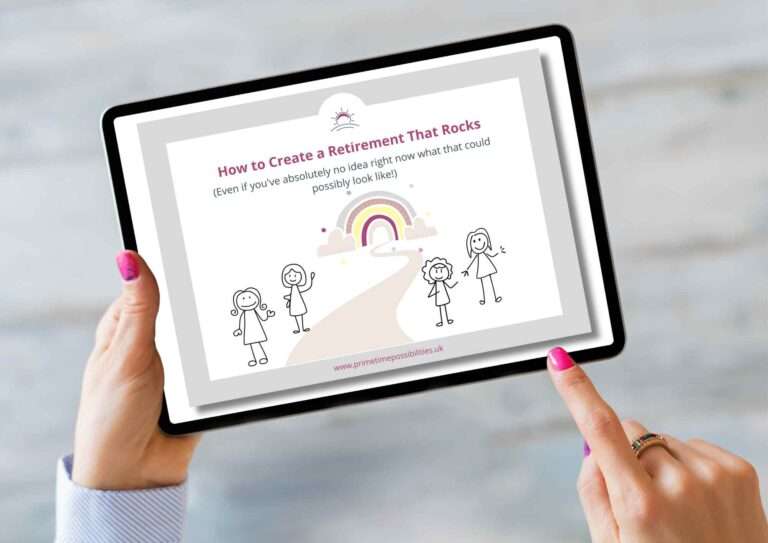The Question That Makes Retirees Squirm
The Question That Makes Retirees Squirm

It’s a seemingly innocent inquiry but one that seems to trigger groans from retirees everywhere.
It’s not the question itself – it’s the unspoken subtext, a hint of judgment that can leave you feeling a little…well, awkward.
And with no job title defining you, crafting the perfect answer to this question can feel surprisingly tricky.
The question? “What do you DO these days?”
Redefining 'what we do'
For most of our working lives, our identity gets interwoven into our careers. We answer the “What do you do?” question with “I’m a teacher” or “I’m a hairdresser” – using our job title as a neat shorthand answer.
But for retirees, this question can feel loaded. Suddenly, the answer isn’t quite clear-cut anymore. The comfortable title we’ve used for years no longer seems to fit and while the word ‘retired’ may be technically accurate it’s about as exciting as a beige cardigan. “Is that all I am? Retired?”
Time to shed those old clothes and step into something that truly fits
Now, I bet you “used to” be a host of different things before retirement. You probably wore many hats, tackled many challenges, and aced many a team meeting! But you are so much more than just the sum of your past accomplishments.
The question is: how long can you hold onto those past titles and identities?
Clinging on to who you used to be and what you used to do is like stubbornly continuing to wear your old work clothes even though they now feel uncomfortable, restrictive and no longer fit!
Retirement is the perfect time to shed those old ‘clothes’ – not your favourite jacket necessarily (though a wardrobe refresh never hurts!), but the outdated expectations and titles that no longer define you. It’s a chance to step into something more comfortable that truly reflects the new, authentic you.

So, how do YOU react to this question?
Is it a conversation starter, a chance to share the vibrant life you’re actively creating, or does it trigger anxiety and a mini-existential crisis?
The discomfort triggered by the question often reflects a deeper struggle. Retirement throws us headfirst into redefining our identity and purpose. Gone are the days when our value and activities were neatly summarized by a job title. Now, we have the freedom – and perhaps the burden – to create a new answer, one that reflects the multifaceted beings we’ve become… an intrepid traveller, volunteer extraordinaire, or a first-time entrepreneur. Or maybe a unique blend of all three!
As for me, I proudly embrace the new label of “semi-retired.”
Work is still a source of immense fulfilment. Coaching, speaking, and training are more than just jobs – they’re passions that allow me to share my experience and make a positive impact. I focus on guiding individuals through this dynamic and sometimes challenging transition to retirement. If that’s you, consider me your guide!
The best part for me is having more freedom, which is SUCH a joy and privilege. I answer to no employer, so my time and energy are mine to manage. This allows me to delve deeper into the activities that truly bring me joy – family and friends, creative pursuits, learning (…always learning!), finding peace on the yoga mat and long country walks – to name but a few!
Choice, flexibility, and balance are the guiding principles of this new chapter for me – a constant challenge, I admit, but one I relish every single day.
What is your discomfort trying to tell you?
The next time the “What do you DO?” question throws you a curveball, pause and reflect.
Could it be, that unexpected twinge of discomfort is trying to tell you something? Perhaps it’s urging you to ditch the old threads and step into something that truly fits – something that reflects the multifaceted YOU.
Ditch the tired “I used to be…” Let your answer be a bold declaration of your present self! This isn’t about what’s now behind you; it’s about the vibrant life you’re actively creating in this exciting new chapter.
Remember, it’s YOUR life. You get to call the shots, make your own choices, and chart your own path. This is your retirement, your way. Embrace it, own it, and live it to the fullest!
How to Create a Retirement that Rocks
(even if you have absolutely no idea right now what that could possibly look like!)

- a concise, creative eBook to guide you into a purposeful future and a retirement that rocks!
- an introduction to the Six Ps framework to help you take the reins of your retirement journey
- thought-provoking questions to help you design your retirement, your way
Thank you!
Full details of how to download your eBook will arrive in your inbox soon!
(Please check your spam folder if you don't see an email from me!)
The Question That Makes Retirees Squirm Read More »







